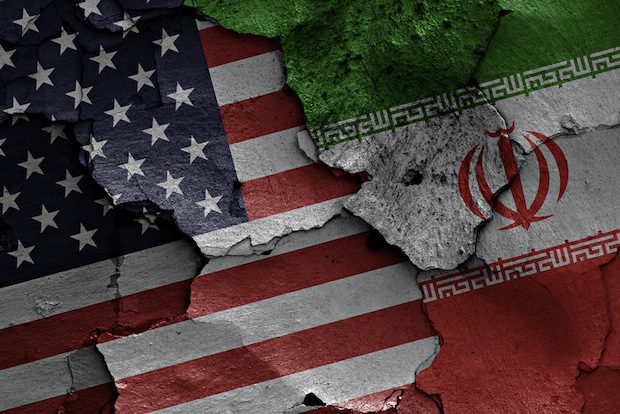Why the Iran Obsession Matters

Christopher Preble comments on Trump’s foreign policy-related appointees:
On substance, Mattis appears to share Flynn’s obsession with Iran, a worrisome prospect in an administration that is full of Iran hawks. During an appearance at CSIS in April, Mattis called Iran “the single most enduring threat to stability and peace in the Middle East,” and not really a nation-state at all but “a revolutionary cause devoted to mayhem.” Yet Mattis has apparently advised against tearing up the Iran nuclear deal (aka the JCPOA) and might be in a stronger position to restrain the president’s bellicose instincts if, at the first sign of trouble, others are advising him to shoot first, and ask questions later.
Along these lines, I sense in Mattis a healthy appreciation for the limits of military power. He’s obviously no pacifist (check out some famous #Mattisisms), but he asks tough questions about what military action is intended to achieve, and whether the mission has the support of the American people. This is not a man who is inclined to treat every problem as a nail, just because Uncle Sam wields a massive hammer.
I hope that Mattis proves to be a check on Flynn inside the administration, but as Preble notes they are in agreement about Iran in some important respects. They both think the Obama administration was not aggressive enough in confronting Iran, and both seem to think that the U.S. needs to do much more to oppose them in the region. Based on what we think we know about Trump’s position, he is inclined to agree with their assessments, and Trump had his strongest objections to Obama’s record on Iran policy.
Paul Pillar fears that the chances of conflict with Iran have increased:
None of this is a prediction that there will be such a war. But the danger of one is greater now than it was before November 8th and the appointments that followed. Vigilance is required to avoid further steps that would increase the chance of a war. The immediate issue to watch is the fate of the nuclear agreement, but that is not the only relevant issue (and Mattis, to his credit, has said that junking the accord now would be a mistake regardless of one’s previous views of it). Also to be watched for are any moves, such as aggressive U.S. military operations in the Persian Gulf, that could become steps down a slippery slope to conflagration.
Benjamin Friedman has warned about this, and I agree that a war with Iran is more likely under the incoming administration. The nuclear deal should be an obstacle to that, but the deal could be scrapped outright or the U.S. could make new demands that end up causing its collapse later on. Even if the deal survives, we should still expect a more aggressively anti-Iranian U.S. posture. Whatever potential there may have been for a better relationship with Iran thanks to the agreement was squandered over the last year and a half, and Trump appears to have no interest in pursuing a better relationship in the future.
That would mean even more indulgence of the Saudis and their Gulf allies in their destructive behavior of the sort we see in Yemen, more weapons sales to clients in the name of “defending” them against Iran, and more hostile rhetoric coming from the White House. There might not be a war against Iran, but there would still be support for continuing U.S. backing of the atrocious war on Yemen, arming reckless clients to the teeth, and possibly a willingness to blow minor incidents in the Gulf out of proportion.
Beyond the obvious entanglements in unnecessary conflicts that serve no U.S. interests, the problem with all this is that it is based on a confused understanding of Iran’s role in the region. Believing that Iran is “a revolutionary cause devoted to mayhem” makes the mistake of taking the regime’s propaganda and rhetoric at face value while also ignoring the extent to which Iran’s foreign policy is not all that different from that of other states. If Iran were “a revolutionary cause devoted to mayhem,” its foreign policy would be far more aggressive than it is, and it would be willing to take more risks for the sake of its supposed devotion to mayhem. Seeing Iran as a “lynchpin” of a vast “alliance” opposed to us also gets things very wrong by grossly exaggerating Iranian power and imagining that they have a powerful group of allies that they simply don’t have. All of this is done to make Iran seem more powerful and dangerous than it is in order to justify more confrontational measures against them.
Comments